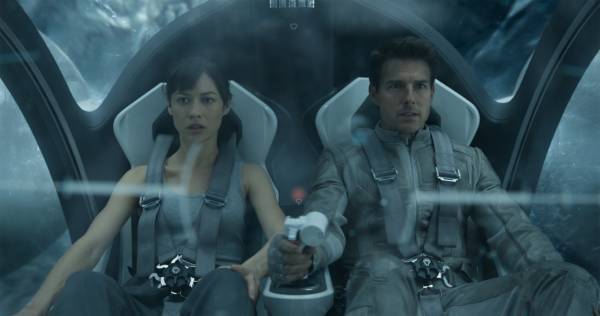In “Oblivion,” [Cruise] spends his days traversing wastelands on a motorbike (the first choice for Cruise-transportation, as it was even in “Top Gun”), and visiting the remnants of leading attractions: the Empire State Building, a caved-in football stadium, and the shell of the New York Public Library, where the first book he finds is a copy of Macaulay, with its ennobling stanzas about Horatius holding the bridge in ancient Rome. Why couldn’t he pick up “Right Ho, Jeeves” or “Green Eggs and Ham”? Halfway through, Morgan Freeman makes an appearance, although somebody forgot to supply him with a proper script, or, indeed, a character. The same goes for Olga Kurylenko, as a beauty named Julia, who lands in a climate-controlled sarcophagus, bringing with her a secret epiphany and a choice of strappy tops. Jack is obsessed with Julia, you feel, without being particularly interested in her, and he only really perks up when obliged, thanks to a cloning subplot, to punch himself. “You should see the other guy,” he says. It’s the one good line in the film.
--Anthony Lane.




 Reply With Quote
Reply With Quote


Bookmarks